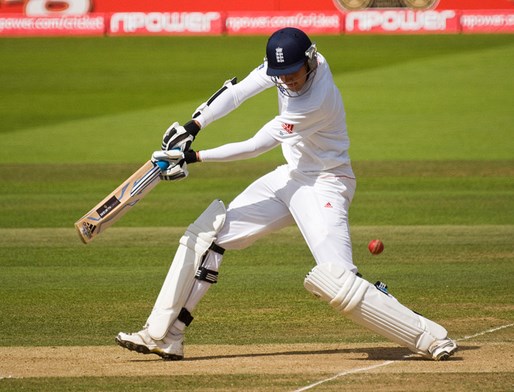Newest cricket scandal should be a wake-up call for governments

The cricket match between England and Pakistan last week was overshadowed by allegations of corruption and match-fixing. Photo (c) flickr user TGIGreeny and licensed under a Creative Commons 2.0 licence.
02.09.2010
By Katja HøiriisUsing hidden recording equipment, the undercover journalists allegedly caught on tape fixer Mazhar Majeed accepting £150.000 to tell them exactly when the three no-balls would occur in the match against England, proving that the game was rigged.
Valuable information
Posing as wealthy businessmen working as front men for an Asian gambling cartel, News of the World’s journalists contacted Majeed, a property tycoon and manager for ten of the Pakistani players.
Majeed promised them that their syndicate could make millions by paying him for information on matches and placing bets on the fixed outcome, writes the News of the World.
“I have been doing it with them, the Pakistani team, for about 2½ years. And we’ve made masses and masses of money”, Majeed told the undercover journalists according to News of the World.
This kind of information is invaluable to betting syndicates and bookmakers in the spot-betting industry, where bets are placed on specific incidents in matches.
Scotland Yard investigates
Provided with the evidence gathered by News of the World, the Scotland Yard launched an investigation against Mazhar Majeed and three players from the Pakistan cricket team, captain Salman Butt and bowlers Mohammad Amir and Mohammad Asif.
According to NDTV, the three players were questioned Wednesday by the Scotland Yard. The ICC is waiting for the police to complete investigations before deciding on future actions.
Failure of the ICC to address corruption
The current spot-fixing scandal happens only a few years after the International Cricket Council (ICC) vowed to crack down on corruption in the wake of another devastating scandal. An Anti-Corruption and Security unit was set up, but seemed to be asleep at the post as it failed to detect the spot-fixing activities revealed by News of the World.
Pakistan parliamentarian Iqal Mohammed Ali is wondering where that unit was during the spot-fixing, writes the Canadian Press.
"What were the security officials of ICC's Anti-Corruption and Security Unit (ACSU) doing in England?" Ali asked. "If we believe that the Majeed brothers were in touch with Pakistan players, how was it possible that it didn't come to the notice of ACSU officials?"
Ali stated that the latest scandal only highlights the failures of the ICC and various governments in South Asia to take the problem of match-fixing seriously.
Call for global anti-corruption unit
Paul Scotney, respected British betting-integrity investigator, feels that the current revelations should be a wake-up call for governments to introduce a global anti-corruption unit, writes the Guardian.
“This should be the wake-up call: the threats are there”, Scotney said. “It’s not ‘illegal bookmakers’, let’s forget that term. This involves serious, organised crime. Governments need to take this subject seriously because it’s so important to people’s lives”.
If not, the under-resourced sports governing bodies risk being left to tackle these problems on their own.





